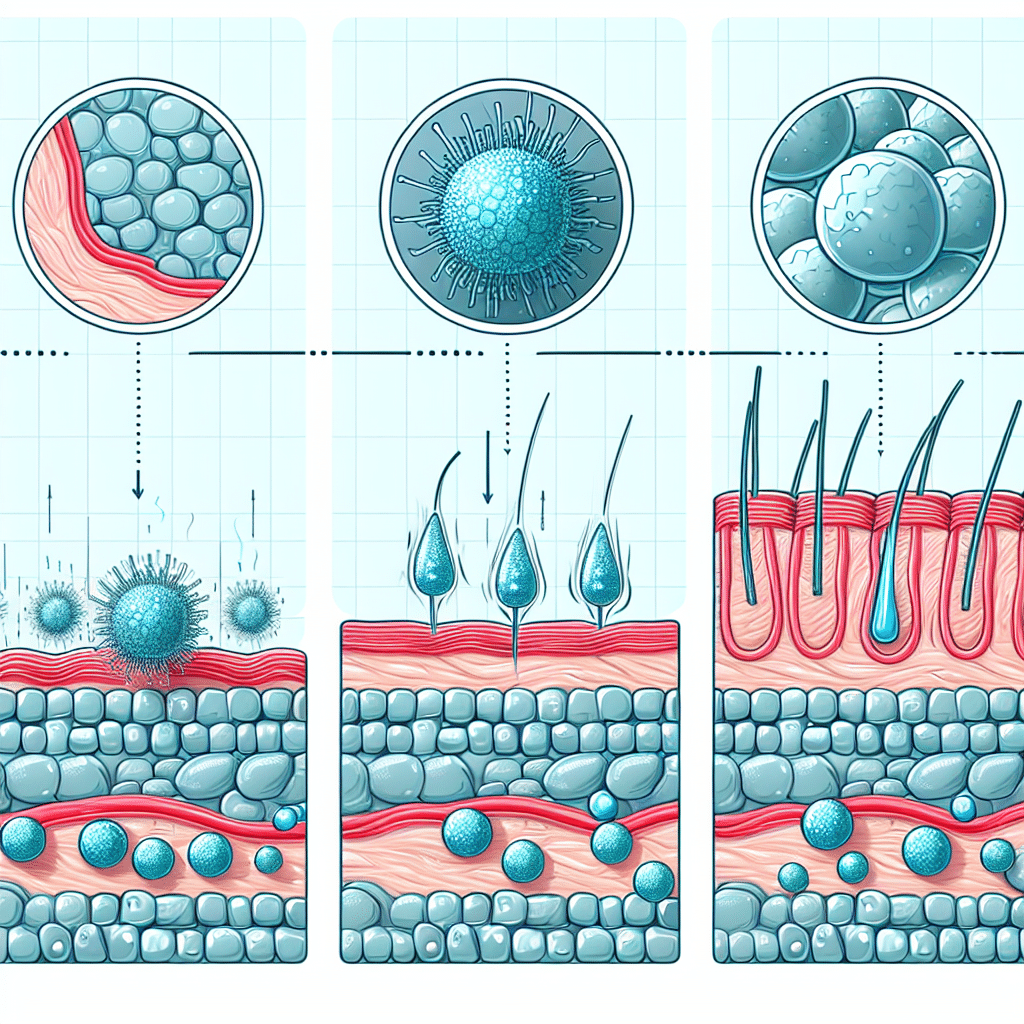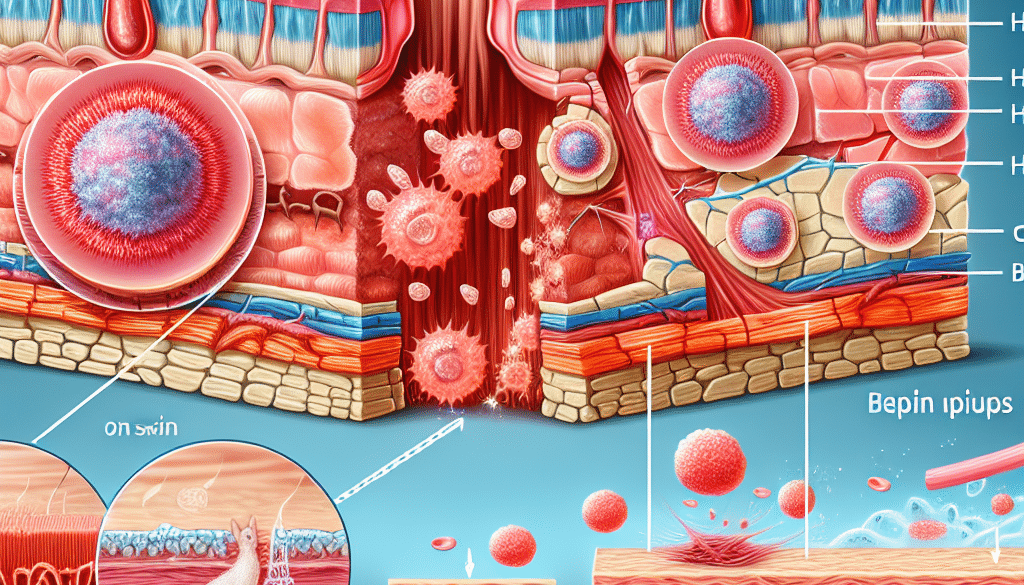Collagen for Wound Care: Healing’s Hidden Helper
-
Table of Contents
- Collagen for Wound Care: The Healing Power Unveiled
- The Role of Collagen in Wound Healing
- Types of Collagen Used in Wound Care
- Benefits of Collagen in Wound Care
- Collagen-Based Products in Clinical Use
- Case Studies and Research on Collagen for Wound Care
- Challenges and Considerations
- Conclusion: Collagen’s Role in Advancing Wound Care
- Discover ETChem’s Premium Collagen Products
Collagen for Wound Care: The Healing Power Unveiled

Collagen, a protein that is ubiquitous in the human body, plays a critical role in maintaining the integrity of our skin, bones, and connective tissues. It is not only a building block for our body’s structure but also a key element in the process of wound healing. This article delves into the benefits of collagen in wound care, exploring how this natural protein can be a hidden helper in the healing process.
The Role of Collagen in Wound Healing
Wound healing is a complex process that involves several stages: hemostasis, inflammation, proliferation, and remodeling. Collagen is particularly important in the proliferation phase, where new tissue is formed, and in the remodeling phase, where the wound matures and gains strength.
- Hemostasis: Immediately after an injury, the body works to stop the bleeding through clot formation.
- Inflammation: This stage clears out debris and bacteria to prevent infection.
- Proliferation: New tissue, including collagen, is produced to replace the damaged area.
- Remodeling: The wound is strengthened as the new collagen fibers reorganize.
Collagen provides a scaffold for new tissue growth, which is essential for wound closure and strength. It also attracts cells such as fibroblasts and keratinocytes that are crucial for tissue regeneration.
Types of Collagen Used in Wound Care
There are several types of collagen used in wound care, each with its unique properties and applications:
- Type I Collagen: The most abundant in the human body, used for its strength and ability to promote tissue repair.
- Type II Collagen: Typically found in cartilage, it’s less common in wound care but can be used for joint injuries.
- Type III Collagen: Often used alongside Type I, it’s found in fast-growing tissue and is important in the early stages of wound healing.
These collagens can be derived from various sources, including bovine, porcine, and marine organisms, and are processed into formats suitable for medical applications, such as powders, gels, and dressings.
Benefits of Collagen in Wound Care
Collagen’s benefits in wound care are numerous and well-documented:
- Promotes Faster Healing: By providing a scaffold for new tissue, collagen can speed up the healing process.
- Reduces Scarring: Collagen dressings can help minimize scar formation by maintaining a moist wound environment.
- Enhances Tissue Regeneration: Collagen attracts critical cells to the wound site, promoting tissue regeneration.
- Supports Angiogenesis: The formation of new blood vessels is crucial for supplying nutrients to the healing tissue, and collagen supports this process.
These benefits make collagen an invaluable component in modern wound care practices.
Collagen-Based Products in Clinical Use
Collagen-based wound care products come in various forms, each tailored to different types of wounds:
- Collagen Sheets and Pads: Used for larger wounds or burns, providing a protective layer that promotes healing.
- Collagen Powders and Gels: Applied to irregularly shaped wounds, they can adapt to the wound’s contours and provide a moist environment.
- Collagen Sponges: Often used in surgical applications, they can absorb fluids and support tissue growth.
These products are designed to be biocompatible and reduce the risk of allergic reactions or rejection.
Case Studies and Research on Collagen for Wound Care
Several studies have highlighted the effectiveness of collagen in wound care:
- A study published in the Journal of Wound Care showed that collagen dressings led to faster healing times in chronic wounds compared to traditional dressings.
- Research in the International Wound Journal found that collagen matrix dressings significantly improved the healing of diabetic foot ulcers.
These studies, among others, provide strong evidence for the use of collagen in various wound care scenarios.
Challenges and Considerations
While collagen is beneficial for wound care, there are challenges and considerations to keep in mind:
- Source and Purity: The source of collagen must be considered to avoid potential allergic reactions or ethical concerns.
- Cost: Collagen products can be more expensive than traditional dressings, which may affect their accessibility and use.
- Storage and Handling: Some collagen products require special storage conditions to maintain their efficacy.
Despite these challenges, the advantages of collagen in wound care often outweigh the drawbacks.
Conclusion: Collagen’s Role in Advancing Wound Care
Collagen is a hidden helper in the world of wound care, offering a natural and effective means to promote healing and improve patient outcomes. Its ability to provide structure, support cell migration, and enhance tissue regeneration makes it an indispensable tool for healthcare professionals. As research continues to evolve, the potential applications of collagen in wound care are likely to expand, further cementing its status as a cornerstone of modern treatment strategies.
Discover ETChem’s Premium Collagen Products
If you’re looking for high-quality collagen for wound care applications, ETChem’s protein products are an excellent choice. Their extensive range of collagens, including marine, fish, bovine, and chicken collagen, are perfect for various medical and pharmaceutical needs. With a commitment to quality and customer satisfaction, ETChem is your go-to source for all your collagen requirements.
About ETChem:
ETChem, a reputable Chinese Collagen factory manufacturer and supplier, is renowned for producing, stocking, exporting, and delivering the highest quality collagens. They include marine collagen, fish collagen, bovine collagen, chicken collagen, type I collagen, type II collagen and type III collagen etc. Their offerings, characterized by a neutral taste, instant solubility attributes, cater to a diverse range of industries. They serve nutraceutical, pharmaceutical, cosmeceutical, veterinary, as well as food and beverage finished product distributors, traders, and manufacturers across Europe, USA, Canada, Australia, Thailand, Japan, Korea, Brazil, and Chile, among others.
ETChem specialization includes exporting and delivering tailor-made collagen powder and finished collagen nutritional supplements. Their extensive product range covers sectors like Food and Beverage, Sports Nutrition, Weight Management, Dietary Supplements, Health and Wellness Products, ensuring comprehensive solutions to meet all your protein needs.
As a trusted company by leading global food and beverage brands and Fortune 500 companies, ETChem reinforces China’s reputation in the global arena. For more information or to sample their products, please contact them and email karen(at)et-chem.com today.

